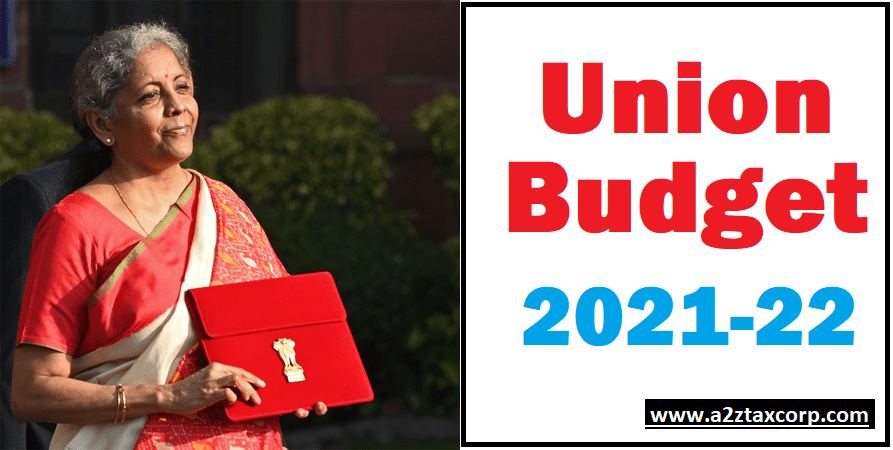Annual Report Analysis With Regards To IP Under Budget 2021-22
Mrs Nirmala Sitharaman, an Indian economist and politician, is currently serving as the finance minister (FM) of our country. The 2nd budget presented under her tenure for the fiscal year 2020-21 ascended for specific improvements in Intellectual Property Rights (IPR). The IP ecosystem has not experienced as much growth as other industries like Start-ups and other technology-based sectors so, there is an immediate need to make reforms and amendments in the Intellectual property Laws so that innovation is protected against intellectual property theft.
Intellectual Property Laws
Intellectual Property can be anything created out of one’s intellect, anything that has been made out of the mind, whether inventions, art-works, designs, images etc. Intellectual Property is given protection under the law through patents, trademarks and copyright as this help people earn fame and financial benefits from the same creation through branding strategies. IPL (Intellectual Property Laws) helps provide certain time-barred exclusive rights (known as Intellectual Property Rights) to these creations to prevent infringement, which also helps increase global competitiveness.
This Department administrates the following Acts related to IPRs:
- The Patents Act, 1970
- The Trade Marks Act, 1999
- The Copyright Act, 1957
- The Geographical Indications of Goods (Registration & Protection) Act, 1999
- The Designs Act, 2000
- The Semiconductor Integrated Circuits Layout-Design Act, 2000
Our country has a very deep-rooted legislative, administrative and judicial framework to protect the IPR (intellectual property rights), which meets its global accountability when consuming the compliances provided in the international regime to focus on developmental concerns. India has a Trade-Related Aspects of Intellectual Property Rights (TRIPS) compliant, vigorous, equitable and dynamic IPR regime.
Why is Budget Allocation important?
Making a budget helps one plan how to spend their money wisely. It helps save money for things that you need; this also helps maintain the nation’s economic stability and growth. The central government must help develop the society and ensure economic growth for which allocation of budget is of utmost importance. The government also provides subsidies and tax rebates to guarantee proper savings and investments and maintain the stable development of the economy. The government shall stimulate the proprietors and business personnel to review their policies to help their nation grow in industrial growth.
The Finance Minister of India, Mrs Nirmala Sitharaman, replaced the swadeshi ‘Bahi Khata’ with a tablet and presented a paperless digital Annual Budget for 2021-2022. Under the 3rd budget speech, she gave most value to the following aspects:
- Health and wellbeing
- Infrastructure
- Inclusive development
- Development of human capital
- Research and Development
- Minimum government, maximum governance
The financial report carried forward positive sentiments across all sectors, including announcing bad bank (a corporate entity that which detaches illiquid risks assets held by any financial institutions) to adding some social-security perquisites and benefits to the people working on online medium/the independent contractors and pushing the infrastructure to healthcare and renewable energy. Under the Companies Act, the revised definition for small companies as per the budget presented this year has been announced as INR 15,700 Crores increment for Micro, Small and Medium Enterprises (MSME/MSMEs) and INR 50,000 Crores increment to brace and nourish the Research and Development Sector. MSME primarily plays a vital role in the economy as they are justified innovators and help in job creation. They contribute to the nation’s economic growth and human resource development.
Intellectual Property Rights Under the Annual Report 2020-21
The Department of Promotion of Industry and Internal Trade also collaborates with several other Departments that render statutes that have elements of innovation and IPR, such as:
- The Biological Diversity Act, 2002 that the Ministry of environment governs forest and climate change enforced by the National Biodiversity Authority (NBA).
- The Protection of Plant Varieties and Farmers’ Rights Act, 2001 which is governed under the Ministry of Agriculture and Farmers Welfare enforced by Protection of Plant Varieties and Farmers’ Rights Authority;
- The Competition Act, 2002 governed under the Ministry of Corporate Affairs and enforced by the Competition Commission of India.
- The Ministry of Commerce and Industry, which governs two Departments i.e., The Department of Commerce and The Department for Promotion of Industry and Internal Trade.
Centre’s Expenditure on Intellectual Property for The Year 2021–22:
Total Revenue Expenditure [consists of the revenue receipts of the government (tax revenues and other revenues) and the expenditure met from these revenues] and total Capital Expenditure [consists of capital receipts and payments and also incorporates transactions in the public account] decided for Intellectual Property in the budget for the fiscal year 2021-22, is INR 226.03 Crores (Revenue- INR 216.03 Cr. and Capital- INR 10.00 Cr.). This has been allocated for various schemes and policies formulated for the promotion and growth of Intellectual Property Rights which are mentioned below:
Schemes And Policies Formed and Budget Allocated for The Year 2021-22:
- Modernisation and strengthening of Intellectual Property Office (MSIPO):
This Scheme for MSIPO was first enforced by the Government in the 11th Five Year Plan (March, 2008) and continued in the 12th Five Year Plan. The enforcing agency in respect of the Scheme has been identified as the office of the Controller General of Patents, Designs and Trademarks (CGPDTM). The primary objectives of the scheme are:
- To empower the offices of Intellectual Property in our country.
- To foster a dynamic Intellectual Property regime here in India.
- To expand the infrastructure according to the modern demands of the society for the Indian Patent Offices to help them function as an International Search Authority and International Preliminary Examining Authority in order to fulfil the needs for international registration of Trade Marks.
- National IPR Policy:
An all-inclusive National IPR policy was adopted in May 2016 to stimulate innovation and creativity across sectors and provide a clear vision regarding IPR issues.
The primary objectives of this Policy are:
- IPR Awareness – To reach out and promote IPR to create public awareness about the economic, social, and cultural benefits of IPR in between all the sections of society.
- Generation of IPRs – To prompt and improve the IPR generation.
- Legal and Legislative Framework – To have capable enough IPR laws to effectively balance owners’ interests with the more considerable public interest.
- Administration and Management – Without proper administration and management of any policy it is of most minor importance. This policy is implemented to become up-to-date so that the IPR administration being service oriented is enhanced and intensified.
- Commercialization of IPRs – Whenever we introduce any new product or service in the market, we need to commercialize it. It is another significant thing as it is necessary to get the value for the IPRs.
- Enforcement and Adjudication – To vigorously enforce and adjudicate these methods for violation of these exclusive rights.
- Human Capital Development – To ensure a solid and capable workforce or human resource and the capacity to teach, train, research and skill building in Intellectual Property.
- Cell for IPR Promotion and Management (CIPAM):
This policy has been implemented as a formal authority under the patronage of the Department of Promotion of Industry and Internal Trade to confirm the actions to be taken against the issues related to Intellectual Property Rights. It also works toward the simplification of the IP Process and spread awareness, commercialization and imposition.The primary objectives of this Policy are:
- To provide an IPR toolkit for the Police while being associated with FICCI (Federation of Indian Chambers of Commerce and Industry).
- To conduct IPR awareness programmes for youth in schools, colleges and universities all around the country.
- To organise training and exercises to create awareness in the industry and MSMEs.
- To provide training programmes for enforcement agencies; up till today 87 such programmes have been conducted.
- Copyright Office:
The enforcement of the Copyright Act, 1957, along with related matters, has come under the attention of the Department of Industrial Policy & Promotion, after amendment in the Government of India (Allocation of Business) Rules, 1961. The Copyright Office had been in force since 1958 under section 9(1) of the Copyright Act, 1957 and is located in Delhi. The fundamental objective of the Copyright Office is to take registration of copyrights. Copyright can be acquired in original literary, dramatic, musical, and artistic works; cinematographic films; and sound recordings.
- Scheme for Pedagogy and Research in IPRs for Holistic Education and Academia:
This scheme (SPRIHA) had been launched to generate vigilance among the public about the socio-economic and cultural benefits of Intellectual Property Rights given to various working sectors of our country. Another object that it holds is building up the IP Chairs in academic organizations of Higher education to let them receive standard teaching and research, help advance the capacity to teach, and evaluate the performance based on their work.
- Scheme for Facilitating Start-ups Intellectual Property Protection (SIPP):
For aiding the Facilitators of Start-up applications in Patents, Designs and trademarks have been further extended for three years. Start-ups are considered powerhouses of limitless innovation and ideas. Therefore, the Central government launched a visionary scheme called “Start-up India, Stand-up India” to support start-ups at the initial stage. This scheme was launched to sustain innovation and creativity.
- Intellectual Policy Rights (IPR) Policy Management:
Intellectual Policy Rights (IPR) Policy Management is the amended version of Scheme for Pedagogy & Research in IPRs for Holistic Education & Academia (SPRIHA). The scheme is under the National IPR Policy and lays special thrust on IP teaching in institutes and promotes studies/ research in different fields of IPR
- Infrastructure Development in Controller General of Patents Designs and Trade Marks (IDCGPDTM):
This policy had been formulated to develop and expand the infrastructure concerning both tangible and human resource. The governing agency for this policy is the Office of the Controller General of Patents Designs and Trade Marks (IDCGPDTM). This office is responsible for administering laws relating to Industrial Property Rights, namely, Patents Act 1970, The Design Act, 2000 and Trade Marks Act, 1999, Geographical Indications Act, 1999, Copyright Act, 1957 and Semiconductor Integrated Circuits Layout Design Act, 2000. IDCGPDTM will provide support for Infrastructure Development for various offices under the Controller of General Patents Designs and Trade Marks.
Cooperation with World Intellectual Property Organisation:
The World Intellectual Property Organisation (WIPO) and The Government of India have
been in close interaction and collaboration to work with each other to make our IP Ecosystem
better and capable. There have been various steps taken towards achieving the same by the
central government in compliance with WIPO. A significant step was signing the SLA
(Service Level Agreement) between DPIIT and WIPO for establishing the Technology and
Innovation Support Centres (TISC) Network in India.
Conclusion
In her budget speech this year, the Finance Minister, Mrs Nirmala Sitharaman, introduced a few incentives to enhance the start-up and MSME ecosystems, searching for dynamic reforms to accelerate their increase again to the pre-Covid era. The declaration put inside for the post-Covid and the first-ever Digital Budget proposed mainly for the small agencies to easy forming of business, insolvency method, even as it at ease rules around setting up companies and providing incentives for investment for start-ups.
To contribute to start-ups in putting in place One Person Companies (OPCs), Mrs Sitharaman (FM) declared OPCs to develop with no constraints on paid-up capital and turnover. She also allowed them to convert into some other type of agency at any time. She shortened the limit on residency for an Indian citizen to set up an OPC from 182 days to 120 days and allowed NRIs to include OPCs in India.




